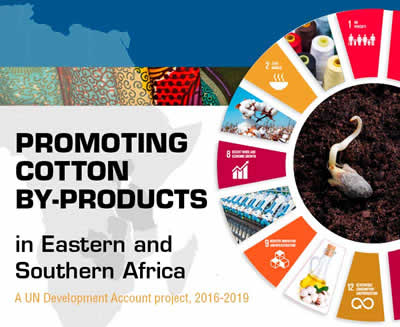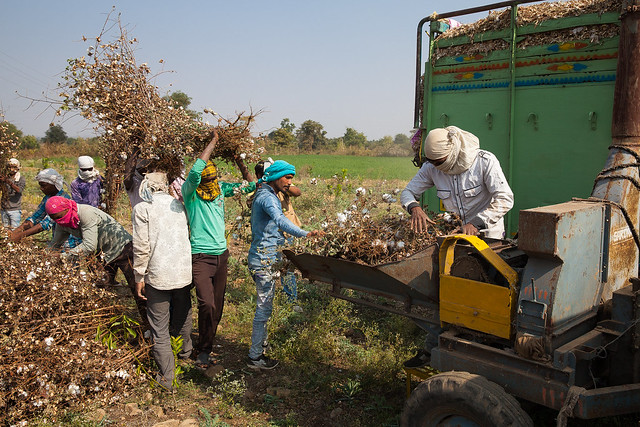Cotton by-products industries are underdeveloped in ESA owing to several impediments, including: inadequate policies to support the development of cotton by-products industries; insufficient data to assess the viability of investments in cotton by-products; and a lack information about value added technologies available in other countries.
UNCTAD designed the technical cooperation project “Promoting cotton by-products in ESA” to address some of these gaps and assist ESA countries in capitalising on opportunities in cotton by-products. Together with its partners, the Common Market for Eastern and Southern Africa (COMESA) and the United Nations Economic Commission for Africa (UNECA), UNCTAD is implementing the project from 2016-19 in Uganda, the United Republic of Tanzania, Zambia and Zimbabwe.
According to the project plan, UNCTAD now proposes a study visit that will allow participants from the four countries to see examples of these cotton by-product technologies in operation, including learning from entrepreneurs how to run their businesses and market their products.
UNCTAD selected ICAR-Central Institute for Research on Cotton Technology (CIRCOT) as the most relevant institution to host the study visit. This follows from CIRCOT’s valuable contributions to the project’s four national workshops. In addition, similarities between the cotton production model employed in India and the four project countries – for example, in both cases, cotton is mainly hand-picked on small farms – mean that the value-added technologies developed at CIRCOT and commercialised in India are often well-suited to the African context, improving the potential for cotton farmers and entrepreneurs in ESA to benefit from their adoption.
Based on their evaluation of potential opportunities, participants of the project agreed on two or three priority cotton by-products to develop in their countries, as well as the policy recommendations necessary to support them, together comprising each country’s National Action Plan to develop cotton by-products. The list cotton by-products are:
• Briquettes and pellets, from cotton stalks and other biomass sources;
• Mushrooms and fertilizer, from cotton stalks;
• Absorbent cotton wool, from short-staple cotton; and
• Removing the enzyme gossypol from cottonseed meal, allowing it to be used in poultry feed.
The study visit will focus on three of the cotton by-products listed above, judged to have the greatest commercial potential in ESA, namely: a) Briquetting and pelleting; b) Absorbent cotton; and c) Removal of gossypol from cottonseed meal. To this end, UNCTAD aims for the study visit to:
- Demonstrate to participants the operation of the cotton by-product processing technologies developed by CIRCOT;
- Provide detailed examples of commercial enterprises employing the technologies, to understand their businesses, operations and marketing;
- Establish contacts with fabricators that could export the required equipment to participants’ home countries;
- Exchange knowledge and experiences related to cotton and its by-products; and
- Promote South-South cooperation, including technology transfer, between India and the four African project countries.

 Cotton by-products industries are underdeveloped in ESA owing to several impediments, including: inadequate policies to support the development of cotton by-products industries; insufficient data to assess the viability of investments in cotton by-products; and a lack information about value added technologies available in other countries.
Cotton by-products industries are underdeveloped in ESA owing to several impediments, including: inadequate policies to support the development of cotton by-products industries; insufficient data to assess the viability of investments in cotton by-products; and a lack information about value added technologies available in other countries. 